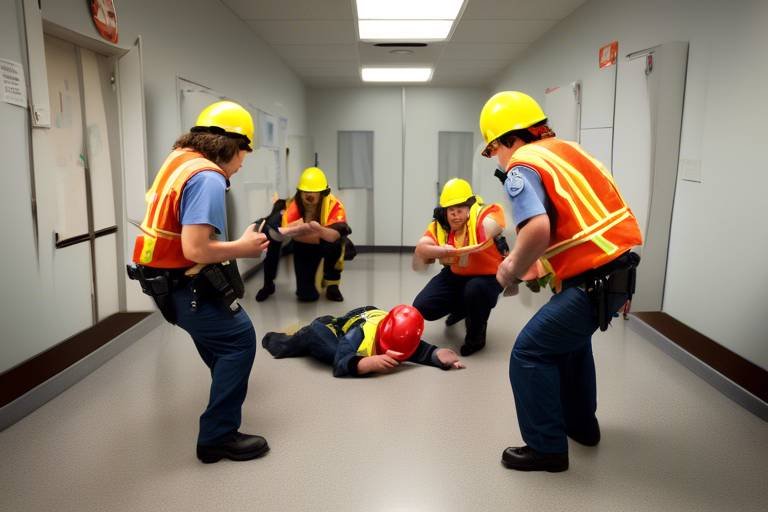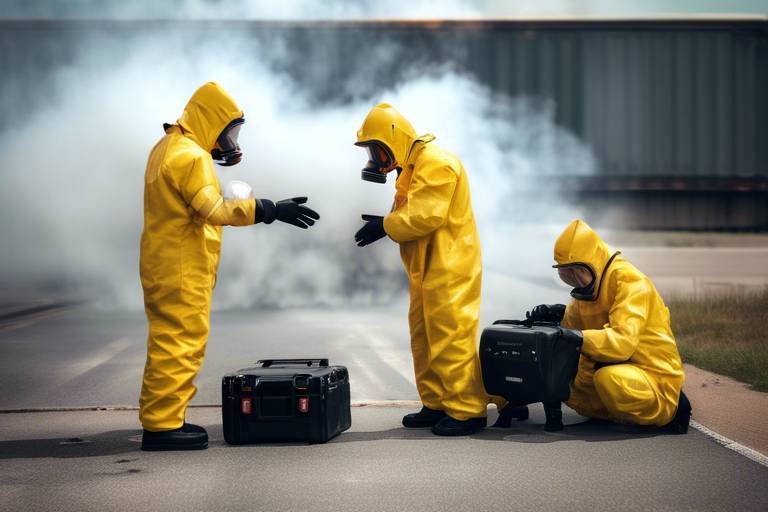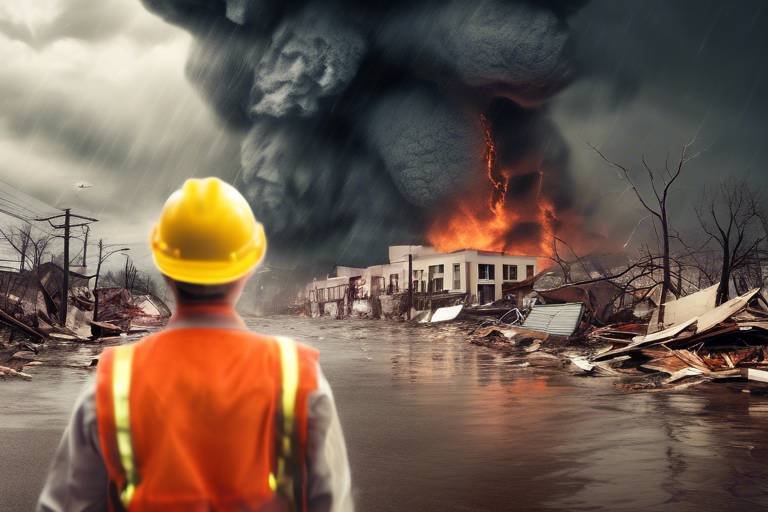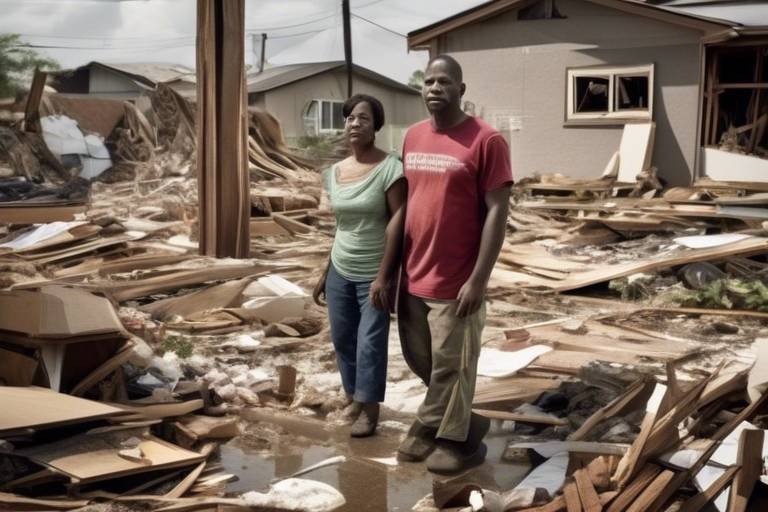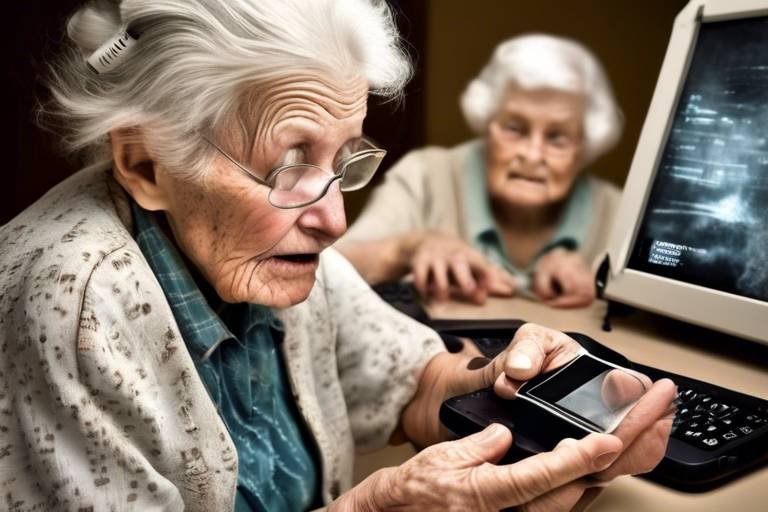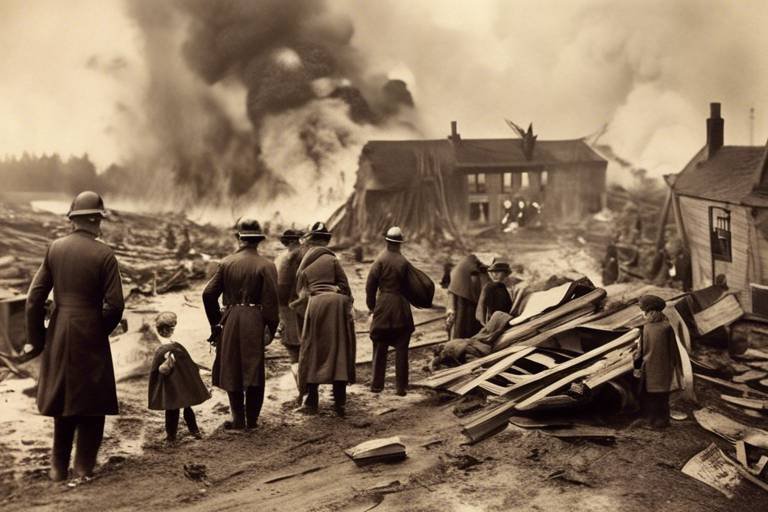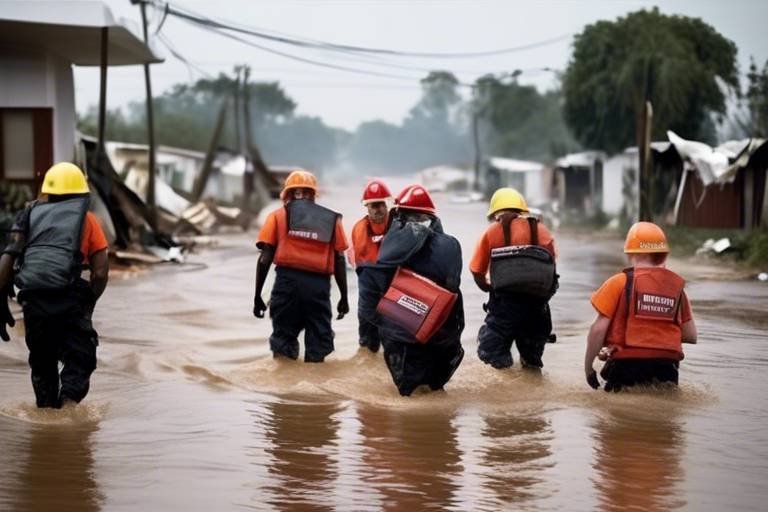Emergency Barter Items You Should Have in Store
In times of crisis, having the right barter items can be invaluable. Imagine a scenario where the usual flow of goods and services is disrupted—what would you wish you had on hand? Bartering becomes a lifeline, a way to exchange what you have for what you need. It’s not just about survival; it’s about community and cooperation. By preparing in advance, you can ensure that you’re not only ready for emergencies but also equipped to help others in your network. So, what should you stockpile? Let’s dive into the essential items that can make a significant difference during turbulent times.
When it comes to bartering, non-perishable food items are crucial. Think about it: in an emergency, everyone will be looking for sustenance. Stocking up on canned goods, dried fruits, and grains can provide both nourishment and valuable trading opportunities. Canned vegetables, beans, and soups are excellent choices because they have a long shelf life and can be easily divided for trade. Additionally, consider including items like rice, pasta, and powdered milk, which are not only filling but also sought after. Remember, the goal is to have a variety of food items that appeal to different tastes and dietary needs.
Clean drinking water is essential in any emergency. Think about how often we take this vital resource for granted! Having water filtration systems or purification tablets can be a lifesaver, making them attractive barter items for those in need. Imagine being able to offer someone clean water when they’re desperate for it—this could establish trust and foster community spirit. Consider investing in portable water filters or even larger filtration systems that can serve multiple people. Not only does this ensure your own safety, but it also positions you as a valuable resource in your community.
In emergencies, access to healthcare can become limited, making medical supplies a hot commodity. First aid kits, over-the-counter medications, and hygiene products can become vital assets for bartering. You might have a neighbor who has food but lacks the necessary supplies to care for a wound or manage a chronic condition. By having extra bandages, antiseptics, and essential medications on hand, you can trade these for food or other necessities. Don’t forget about hygiene products like soap, toothpaste, and feminine hygiene items, as these are often overlooked but crucial for maintaining health during stressful times.
Basic tools can be essential for survival, and they also serve as excellent barter items. Imagine trying to build a shelter or fix a broken item without the right tools! Items like multi-tools, shovels, and axes can be invaluable in emergencies. Not only do they help you with your own needs, but they can also be traded with others who may have skills but lack the necessary equipment. Having a good assortment of tools allows you to tackle various problems and makes you a key player in your community’s recovery efforts.
Having extra fuel, like propane or gasoline, along with fire-starting supplies can be crucial. In a crisis, the ability to cook food or keep warm can make all the difference. These items are often sought after during emergencies, making them effective for barter. Consider storing items like matches, lighters, and fire starters alongside your fuel supply. This combination not only enhances your survival capabilities but also gives you something valuable to trade when others are in need.
Warm clothing and durable blankets are essential for survival. Picture a cold night without adequate shelter—it's not just uncomfortable; it can be deadly. These items can be traded for food or medical supplies, proving their worth in emergency situations. Stock up on thermal wear, sturdy jackets, and high-quality blankets. It’s also wise to have extra pairs of socks and gloves, as keeping warm can be a challenge during a crisis. By being prepared, you can ensure your own comfort while also having the means to assist others.
Having seeds and gardening tools allows for sustainable food production. In prolonged emergencies, the ability to grow your own food can be a game-changer. These items can be bartered with others looking to cultivate their own food. Consider stocking up on a variety of seeds—vegetables, herbs, and even grains. Pair these with essential gardening tools like trowels and watering cans. This not only sets you up for future food security but also positions you as a valuable resource for those who may not have the means to start their own garden.
Toiletries and personal hygiene products are often overlooked but essential. In a crisis, maintaining hygiene can be a challenge, making these items valuable for barter. Stocking up on things like soap, toilet paper, and feminine hygiene products can ensure your own health while providing options for trade. Imagine being the person with extra toothpaste or shampoo when everyone else is scrambling to find basic necessities. By planning ahead, you can secure your own comfort and offer assistance to others.
Radios and other communication devices can be critical during emergencies. They can help you stay informed about what’s happening in your area, which is invaluable when traditional communication networks fail. These devices can also serve as valuable barter items for those seeking information. Consider investing in a hand-crank radio or walkie-talkies to ensure you can communicate with others. Being informed not only keeps you safe but can also make you a trusted source of information in your community.
1. What are the best food items to stockpile for barter?
Canned goods, dried fruits, grains, and long-lasting staples like rice and pasta are excellent choices. They have a long shelf life and can be divided easily for trade.
2. How can I ensure my water supply is safe?
Invest in water filtration systems and purification tablets. These items are not only useful for your own needs but can also be traded with others in need of clean water.
3. What medical supplies should I have on hand?
A well-stocked first aid kit, over-the-counter medications, and hygiene products are essential. These can be traded for food or other necessary items during a crisis.
4. Why are tools important for bartering?
Basic tools are essential for survival and can be traded with others who may have skills but lack the necessary equipment to complete tasks.
5. How can I prepare for a prolonged emergency?
Consider stocking seeds and gardening supplies to grow your own food. This can provide sustainable food production and can be a valuable barter item.

Food Supplies
In times of crisis, having the right barter items can be invaluable. This article explores essential items to stockpile for trading in emergencies, ensuring you’re prepared for any situation.
When it comes to emergency preparedness, are at the top of the list. Imagine being in a dire situation where access to food is limited; having a stash of non-perishable items can make all the difference. Not only do these supplies provide sustenance for you and your family, but they also serve as valuable trading currency in times of need. Think about it: when everyone is scrambling for resources, food becomes a highly sought-after commodity.
So, what should you stockpile? Here are some essential food items to consider:
- Canned Goods: These are a staple. From beans to vegetables, canned goods have a long shelf life and can be easily traded.
- Dried Fruits: Not only are they nutritious, but they also have a great shelf life and can be a sweet treat in tough times.
- Grains: Items like rice, oats, and pasta are filling and can be used as barter items for other necessities.
By focusing on non-perishable foods, you can ensure that you're not only prepared for your own needs but also positioned to help others in exchange for what you might lack. Think of your food supplies as a lifeline—the more diverse and plentiful your stock, the more options you have when trading with others. Additionally, consider the nutritional value of the foods you choose. After all, you want to maintain your health and energy levels during a crisis.
It’s also wise to think about the packaging of your food supplies. Foods in sturdy, airtight containers will last longer and be easier to trade. If you have the space, consider investing in a vacuum sealer to extend the life of your perishables. This way, you’re not just hoarding food; you’re creating a resource that can be utilized effectively in a barter situation.
In summary, food supplies are not just about survival; they’re about empowerment in times of crisis. By preparing in advance, you not only secure your own well-being but also position yourself as a valuable trading partner in your community. Remember, in an emergency, every can of beans or bag of rice could be the key to a successful barter.
Q: What types of food are best for emergency supplies?
A: Non-perishable items like canned goods, dried fruits, and grains are ideal as they have a long shelf life and can be easily traded.
Q: How much food should I store?
A: Aim to have at least a few weeks' worth of food for each person in your household, but the more you can store, the better prepared you will be for emergencies.
Q: How can I ensure my food supplies last longer?
A: Store food in a cool, dark place and use airtight containers. Vacuum sealing can also help extend the shelf life of perishable items.

Water Filtration Systems
In any emergency situation, having access to clean drinking water is not just a luxury; it’s a necessity. When the taps run dry or the water supply is compromised, the ability to filter and purify water can mean the difference between life and death. This is where come into play. Imagine being in a crisis where you have limited access to safe drinking water. Wouldn’t it be reassuring to know you have the means to make contaminated water safe?
Water filtration systems come in various forms, each with its own set of advantages. From portable filters that you can take on the go to more permanent installations for your home, these systems provide a reliable way to ensure that you and your family can stay hydrated. In a barter situation, a good quality water filtration system can be a highly sought-after item, especially if others are struggling to find clean water. It’s not just about survival; it’s about providing security and peace of mind.
When considering which water filtration systems to stockpile, think about the following options:
- Portable Water Filters: These are ideal for emergencies and outdoor activities. They are easy to pack and can filter out bacteria and protozoa.
- Gravity Filters: These systems are great for home use, allowing you to filter larger quantities of water without the need for electricity.
- Water Purification Tablets: A compact solution that can be a lifesaver. Just add a tablet to a water source, wait, and you have drinkable water.
Moreover, it’s essential to understand how these systems work. Most water filters utilize a combination of physical filtration and chemical treatment to remove impurities. For example, a common method is activated carbon filtration, which can remove chlorine, sediment, and volatile organic compounds (VOCs). Some systems even use UV light to kill bacteria and viruses, making them an excellent choice for emergency preparedness.
In addition to having these systems on hand, consider creating a water storage plan. This means not only filtering water when you need it but also having a supply of clean water ready for immediate use. A good rule of thumb is to store at least one gallon of water per person per day for at least three days. This can be supplemented with your filtration systems to ensure that your supply lasts longer.
In summary, investing in water filtration systems is a smart move for anyone serious about emergency preparedness. Not only can they provide you with clean drinking water, but they can also serve as valuable barter items in times of need. The ability to offer something as critical as water filtration can position you as a valuable resource in your community, enhancing both your safety and your social standing during a crisis.
Q: What is the best type of water filtration system for emergencies?
A: The best type of system depends on your specific needs, but portable filters and gravity filters are popular choices for emergencies due to their effectiveness and ease of use.
Q: How long can I store filtered water?
A: Filtered water can typically be stored for up to six months if kept in a cool, dark place. However, it’s best to regularly rotate your water supply.
Q: Can I use water purification tablets for all types of water?
A: Water purification tablets are effective against bacteria and viruses but may not remove heavy metals or chemical contaminants. Always check the product specifications.
Q: How often should I replace my water filter?
A: This depends on the type of filter and how much water you use. Always refer to the manufacturer's guidelines for replacement schedules.

Medical Supplies
When it comes to emergencies, the importance of cannot be overstated. Imagine a scenario where access to healthcare is limited or non-existent; having a well-stocked supply of medical items can be the difference between life and death. First aid kits, medications, and hygiene products are not just optional; they are essential assets that can be traded for food or other necessities when resources become scarce.
First aid kits should be the cornerstone of your medical supplies. A comprehensive kit should include items like bandages, antiseptics, gauze, and adhesive tape. But don’t stop there! Consider adding items such as:
- Burn ointment
- Cold packs
- Splints
- Thermometers
These items can be invaluable in treating injuries or illnesses that may arise during a crisis. Furthermore, if you have any specific medications that you or your family members require, make sure to stockpile those as well. Over-the-counter medications like pain relievers, antihistamines, and cold medicines can also be highly sought after during emergencies.
In addition to medical supplies, personal hygiene products are often overlooked but are equally crucial. Keeping clean can prevent infections and illnesses, which can spread rapidly in a crisis. Items like soap, hand sanitizer, toothpaste, and feminine hygiene products should not be neglected. These supplies can also serve as excellent barter items, as many people will be in desperate need of them.
To give you a better idea of what to include in your medical supply stash, here’s a simple table summarizing essential items:
| Item | Purpose |
|---|---|
| First Aid Kit | Basic treatment for injuries |
| Prescription Medications | Essential for chronic conditions |
| Over-the-Counter Medications | Pain relief and symptom management |
| Personal Hygiene Products | Prevention of infections |
As you prepare your medical supplies, remember to check expiration dates and rotate items regularly. It’s also wise to consider the storage conditions; keeping everything in a dry, cool place will ensure that your supplies remain effective when you need them most. In a world where uncertainty looms, having the right medical supplies can give you peace of mind and a bargaining chip in times of need.
Q: Why are medical supplies important during emergencies?
A: Medical supplies are crucial because they can help treat injuries and illnesses when access to healthcare is limited. They can also be bartered for food and other necessities.
Q: What should I include in my first aid kit?
A: A comprehensive first aid kit should include bandages, antiseptics, gauze, adhesive tape, burn ointment, cold packs, splints, and thermometers.
Q: How can I ensure my medical supplies remain effective?
A: Regularly check expiration dates, rotate items, and store them in a cool, dry place to maintain their effectiveness.

Tools and Equipment
In times of crisis, having the right barter items can be invaluable. This article explores essential items to stockpile for trading in emergencies, ensuring you’re prepared for any situation.
Non-perishable food items are crucial for barter. Stocking up on canned goods, dried fruits, and grains can provide sustenance and valuable trading opportunities during emergencies. Think about it: when the shelves are empty and everyone is scrambling for food, those cans of beans and packets of rice can become your golden ticket. Having a variety of food options can also help you appeal to different tastes and dietary restrictions, making your supplies even more desirable.
Clean drinking water is essential in any emergency. Having water filtration systems or purification tablets can be a lifesaver and an attractive barter item for those in need. Imagine a scenario where access to clean water is compromised; your ability to provide this basic necessity can put you in a powerful position. Whether it’s a portable filter or a large purification system, these items should not be underestimated.
First aid kits, medications, and hygiene products are vital in emergencies. These items can be traded for food or other necessities, making them valuable assets in a crisis. When the unexpected happens, having a well-stocked medical kit can mean the difference between life and death. Think about the peace of mind that comes with knowing you have what you need to treat minor injuries or even more serious health issues. Plus, in a barter situation, these supplies can be incredibly sought after.
When it comes to survival, basic tools can be your best friend. Imagine trying to build a shelter or start a fire without the right equipment—frustrating, right? That’s why having a collection of essential tools, such as multi-tools, shovels, and axes, is crucial. Not only do these tools help you with immediate survival tasks, but they also serve as excellent barter items for those looking to trade for other resources.
A multi-tool, for example, can perform several functions, making it a versatile companion in any emergency scenario. Shovels can be used for digging, whether you’re creating a garden or clearing debris, while axes can help you gather firewood or even build a shelter. The value of these items increases significantly when you consider their utility in tough situations.
In terms of bartering, tools can be particularly appealing because they are often hard to come by in a crisis. If you have a reliable set of tools, you can trade them for food, water, or other necessities that may be more difficult to secure. This makes them not just practical for your own survival but also a strategic asset for trading.
Here’s a quick overview of some essential tools and their uses:
| Tool | Uses |
|---|---|
| Multi-tool | Versatile functions for various tasks |
| Shovel | Digging, moving earth, clearing debris |
| Hatchet/Axe | Cutting wood, building shelters, kindling |
| Rope | Securing items, building structures, climbing |
| Firestarter | Starting fires for warmth and cooking |
In summary, having the right tools not only enhances your ability to survive but also positions you as a valuable trading partner in times of need. So, stock up and be prepared to barter your way through any crisis!
Having extra fuel, like propane or gasoline, along with fire-starting supplies, can be crucial. These items are often sought after during emergencies and can be used effectively in barter.
Warm clothing and durable blankets are essential for survival. These items can be traded for food or medical supplies, proving their worth in emergency situations.
Having seeds and gardening tools allows for sustainable food production. These items can be bartered with others looking to cultivate their own food during prolonged emergencies.
Toiletries and personal hygiene products are often overlooked but essential. Stocking these items can ensure your own health while providing valuable barter options in a crisis.
Radios and other communication devices can be critical during emergencies. They can help you stay informed and can also be valuable barter items for those seeking information.
- What are the best food items to stockpile for barter? Non-perishable items like canned goods, dried fruits, and grains are ideal.
- How can I purify water in an emergency? Water filtration systems and purification tablets are effective solutions.
- Why are tools so important for barter? They are valuable for survival tasks and can be traded for essential resources.
- What personal hygiene items should I have? Stock up on toiletries like soap, toothpaste, and sanitary products.
- How can I stay informed during a crisis? Communication devices like radios can keep you updated on the situation.

Fuel and Fire Starters
When it comes to emergencies, one of the most crucial aspects of survival is having a reliable source of heat and energy. This is where come into play. Imagine being in a situation where the temperature drops, and you have no way to cook food or stay warm. It’s a daunting thought, isn’t it? That's why stocking up on extra fuel, like propane or gasoline, along with fire-starting supplies, should be a top priority.
Fuel isn’t just about keeping warm; it’s also about cooking meals and purifying water. In a crisis, having a portable camping stove or a grill can be a game-changer. You can whip up a hot meal, which can be a significant morale booster when times are tough. Moreover, being able to boil water is essential for ensuring it’s safe to drink. The key here is to have a variety of fuel options available, as different situations may call for different sources of energy.
Now, let’s talk about fire starters. These are the unsung heroes of emergency preparedness. While you might think a simple match or lighter would suffice, consider the unpredictability of weather conditions. Rain, wind, or even snow can make starting a fire with traditional methods challenging. That’s why having a range of fire-starting supplies is so important. Here’s a quick breakdown of some effective options:
- Matches: Always keep waterproof matches on hand. They’re compact and easy to store.
- Lighters: A reliable lighter can be a lifesaver. Consider windproof models for outdoor conditions.
- Firestarter Kits: These kits often include materials like cotton balls coated in petroleum jelly, which ignite quickly and burn for a longer duration.
- Flint Strikers: These are excellent for creating sparks, especially in wet conditions.
Having these items not only prepares you for personal use but also makes you a valuable resource for others. In a barter situation, fuel and fire starters can be highly sought after. Imagine trading a few extra propane tanks for essential food supplies or medical gear. It’s all about being resourceful and thinking ahead. The more versatile your stockpile, the better your chances of navigating through tough times.
In summary, fuel and fire starters are not just items to check off a list; they are essential tools that can make a significant difference in survival scenarios. By ensuring you have a variety of fuel sources and effective fire-starting supplies, you’re not only preparing for your own needs but also positioning yourself as a valuable trader in your community. In a world where the unexpected can happen at any moment, being prepared is the best strategy.
1. What types of fuel should I stockpile for emergencies?
It's best to have a mix of fuels such as propane, gasoline, and even charcoal. Each has its own advantages depending on your cooking and heating needs.
2. How can I ensure my fire starters work in wet conditions?
Opt for waterproof matches and windproof lighters. Additionally, consider creating fire starter kits using materials that ignite easily, even when damp.
3. How much fuel should I store?
A good rule of thumb is to have at least a few weeks' worth of fuel for cooking and heating. Assess your needs based on your household size and consumption rates.
4. Can I barter fuel and fire starters with my neighbors?
Absolutely! Fuel and fire starters are highly valuable in emergencies. They can be traded for food, medical supplies, or other essentials.

Clothing and Blankets
When it comes to emergencies, are not just about comfort; they are essential for survival. Imagine being caught in a sudden snowstorm or a natural disaster with nothing but the clothes on your back. The thought itself sends chills down your spine, doesn't it? This is why having a stockpile of durable, warm clothing and quality blankets can be a game-changer. These items can keep you warm, protect you from the elements, and even serve as valuable barter items.
In an emergency situation, layering is key. You want clothing that can be easily added or removed depending on the temperature. Consider investing in items such as:
- Thermal underwear: Perfect for layering and retaining body heat.
- Waterproof jackets: Essential for keeping dry in wet conditions.
- Sturdy boots: Protect your feet and provide traction in slippery environments.
- Hats and gloves: Don't underestimate the power of keeping your extremities warm.
But it’s not just about warmth; it’s also about functionality. Look for clothing that is durable and can withstand wear and tear. Fabrics like wool and synthetics are excellent choices because they offer insulation even when wet. Additionally, consider the versatility of your clothing. Items that can serve multiple purposes are invaluable. For instance, a large blanket can double as a shelter, while a poncho can keep you dry and serve as a makeshift sleeping bag.
Blankets, on the other hand, are crucial for maintaining body heat, especially during cold nights. Fleece and wool blankets are ideal choices because they provide warmth without adding excessive weight. In a barter situation, a quality blanket can be traded for food or medical supplies, making it a valuable asset. Just think about it: would you rather have a can of beans or a warm blanket to snuggle under on a freezing night?
Finally, don’t overlook the importance of hygiene when it comes to clothing. Clean, dry clothes can help prevent illness, which is particularly important in emergencies. Consider adding a few extra pairs of socks and underwear to your stockpile. These small items can make a significant difference in maintaining your health and morale during tough times.
In summary, stocking up on clothing and blankets is not just a smart move; it’s a necessary one. They can mean the difference between comfort and suffering in an emergency. So, take a moment to evaluate your current supplies and think about what you might need to add to your collection. You'll be glad you did when the unexpected strikes!
Q: Why are clothing and blankets important in emergencies?
A: They provide warmth, protection from the elements, and can be traded for other essential supplies.
Q: What types of clothing should I prioritize?
A: Focus on thermal layers, waterproof jackets, sturdy boots, and accessories like hats and gloves.
Q: How can blankets be used in emergencies aside from keeping warm?
A: Blankets can serve as makeshift shelters, sleeping bags, or even be used for first aid purposes.
Q: Should I consider hygiene when stocking clothing?
A: Absolutely! Clean and dry clothing is key to maintaining health during emergencies.

Seeds and Gardening Supplies
In the chaotic whirlwind of an emergency, the importance of cannot be overstated. Imagine a world where grocery stores are empty, and the only way to secure food is through your own resourcefulness. Having a stash of seeds at your disposal can transform a bleak situation into a flourishing garden, providing sustenance not just for yourself but potentially for your community as well. It's like having a golden ticket to a never-ending buffet, where you control the menu!
When considering what seeds to stock, think about a diverse mix that can grow in various climates and conditions. Here are some essential types of seeds you might want to consider:
- Vegetable Seeds: Carrots, tomatoes, and beans are great choices because they are relatively easy to grow and provide substantial nutrition.
- Herb Seeds: Basil, parsley, and cilantro not only enhance your meals but also have medicinal properties.
- Fruit Seeds: Strawberries and melons can be delightful additions to your garden, offering sweetness in tough times.
But it’s not just about the seeds themselves; having the right gardening supplies is equally crucial. Essentials like shovels, trowels, and watering cans can make the process of planting and maintaining your garden much smoother. Think of your garden tools as your trusty sidekicks in the quest for survival. Without them, the journey can be daunting, akin to trying to bake a cake without an oven!
Moreover, consider investing in items like compost bins or organic fertilizers. These can enhance soil quality and yield, ensuring that your efforts are met with success. In a way, it’s like giving your plants a little boost of confidence, helping them grow strong and resilient, just like you need to be in tough times.
As you gather your seeds and supplies, don’t forget to think about storage. Keep your seeds in a cool, dry place, ideally in airtight containers to prolong their viability. A seed vault, if you will! This way, you can ensure that your precious cargo remains safe and ready for planting when the time comes.
In a prolonged emergency, the ability to produce your own food can be a game-changer. Not only does it provide sustenance, but it also offers a sense of normalcy and accomplishment. Gardening can be therapeutic, allowing you to connect with nature even in the direst of circumstances. So, stock up on those seeds and supplies, and prepare to cultivate not just food, but hope!
1. How long do seeds last?
Most seeds can last several years if stored properly. However, it's best to check the specific viability of each type of seed.
2. What are the best seeds for beginners?
Easy-to-grow seeds include radishes, lettuce, and sunflowers. They germinate quickly and require minimal care.
3. Can I grow food indoors?
Absolutely! Many herbs and vegetables can thrive indoors with adequate light. Consider using grow lights if natural sunlight is limited.
4. How do I know when to plant my seeds?
Check the seed packet for specific planting times based on your climate zone. Generally, spring is a popular time for planting most seeds.

Personal Hygiene Items
In times of crisis, having the right barter items can be invaluable. This article explores essential items to stockpile for trading in emergencies, ensuring you’re prepared for any situation.
Non-perishable food items are crucial for barter. Stocking up on canned goods, dried fruits, and grains can provide sustenance and valuable trading opportunities during emergencies. Imagine being in a situation where food is scarce; having a stash of these items can make you a valuable resource in your community. Not only do they keep you fed, but they also give you leverage in trades when others are desperate for nourishment.
Clean drinking water is essential in any emergency. Having water filtration systems or purification tablets can be a lifesaver and an attractive barter item for those in need. Think about it: water is life. When the tap runs dry, your ability to provide clean water can set you apart as a crucial player in your neighborhood’s survival game.
First aid kits, medications, and hygiene products are vital in emergencies. These items can be traded for food or other necessities, making them valuable assets in a crisis. Picture a scenario where someone needs a bandage or medication; your preparedness could literally save a life. Stocking up on these supplies not only ensures your health but also positions you as a trusted trader in tough times.
Basic tools, such as multi-tools, shovels, and axes, can be essential for survival. They also serve as excellent barter items for those looking to trade for other resources. Having the right tools can mean the difference between being able to build shelter or not, making them highly sought after when resources are limited.
Having extra fuel, like propane or gasoline, along with fire-starting supplies, can be crucial. These items are often sought after during emergencies and can be used effectively in barter. When the lights go out and the temperature drops, your ability to provide warmth and cooking fuel can make you the go-to person in your community.
Warm clothing and durable blankets are essential for survival. These items can be traded for food or medical supplies, proving their worth in emergency situations. Imagine a cold night with no heat; having extra blankets could not only keep you warm but also allow you to help others in need, fostering a sense of community and mutual support.
Having seeds and gardening tools allows for sustainable food production. These items can be bartered with others looking to cultivate their own food during prolonged emergencies. In a world where grocery stores might be empty, the ability to grow your own food is a game changer. Seeds represent hope and self-sufficiency, making them incredibly valuable in barter situations.
Toiletries and personal hygiene products are often overlooked but essential. Stocking these items can ensure your own health while providing valuable barter options in a crisis. Think about it: in a situation where resources are scarce, having extra soap, toothpaste, and sanitary supplies can be a lifesaver. Not only do these items help maintain your well-being, but they also make you a sought-after trader. People will pay a premium for hygiene items when they realize how important they are for health and morale. Consider including products such as:
- Toothbrushes and toothpaste
- Soap and hand sanitizers
- Feminine hygiene products
- Deodorants
- Shampoo and conditioner
Maintaining personal hygiene can boost morale during difficult times, and being able to offer these essentials can create a network of trust and support among your neighbors. In a barter economy, hygiene items become more than just products; they symbolize care and consideration for oneself and others.
Radios and other communication devices can be critical during emergencies. They can help you stay informed and can also be valuable barter items for those seeking information. Imagine being the only one in your area with a working radio, keeping everyone updated on the latest news and developments. Your ability to communicate can make you a central figure in your community, enhancing your value as a trader.
Q: Why are personal hygiene items important in emergencies?
A: Personal hygiene items help maintain health and morale, making them crucial during any crisis. They can prevent illness and provide comfort when resources are limited.
Q: What are some essential personal hygiene items to stockpile?
A: Consider items like soap, toothpaste, feminine hygiene products, deodorants, and hand sanitizers. These are often in high demand during emergencies.
Q: How can I barter effectively with these items?
A: Understand the needs of your community and be prepared to trade items that are in demand. Building relationships and trust will also enhance your bartering power.

Communication Devices
In any emergency scenario, the ability to communicate effectively can be a game-changer. Imagine being cut off from the world, with no way to get updates on the situation outside your immediate surroundings. This is where come into play. Having reliable devices at your disposal can not only keep you informed but also serve as valuable barter items in crisis situations. Whether it's a simple handheld radio or a more sophisticated satellite phone, these tools can help you stay connected when it matters most.
One of the most essential devices you should consider is a hand-crank or battery-operated radio. These radios can receive weather reports, emergency broadcasts, and other critical information when other forms of communication fail. They are particularly valuable because they don’t rely on the grid, which may be down during a crisis. Imagine being able to tune in and hear updates about rescue efforts or safety information while others are left in the dark.
Another important device is a two-way radio. These are perfect for families or groups who may find themselves separated during an emergency. With a two-way radio, you can communicate over short distances without needing a cellular network. This is especially useful in rural areas or during natural disasters when cellular towers may be damaged. Plus, they can be a fantastic barter item for someone who needs to keep in touch with their loved ones.
Let’s not forget about satellite phones. While they may come with a higher price tag, they offer unparalleled connectivity. In scenarios where traditional networks are down, satellite phones can provide a lifeline, allowing you to make calls and send messages from virtually anywhere. This capability can be incredibly valuable, not just for your own safety, but also as a trading asset for others in dire need of communication.
Here’s a quick comparison of various communication devices you might consider:
| Device Type | Pros | Cons |
|---|---|---|
| Hand-crank Radio | Doesn't require batteries, receives emergency broadcasts | Limited range, may not have advanced features |
| Two-way Radio | Great for short-distance communication, easy to use | Limited range, requires batteries |
| Satellite Phone | Global coverage, reliable in remote areas | Expensive, requires a subscription |
Lastly, having a power bank or solar charger for your devices can ensure that you never run out of battery when you need it the most. These chargers can keep your radios and phones operational, allowing you to stay connected longer. In a world where information is power, having the means to charge your devices can be a crucial advantage.
In summary, investing in is not just about staying informed; it’s about enhancing your survival strategy in emergencies. These tools can provide a sense of security and peace of mind, knowing you can reach out for help or stay updated on the situation. Plus, in a barter economy, they can become invaluable assets that others may desperately need.
- What is the best communication device for emergencies? - It depends on your needs, but a combination of a hand-crank radio and a two-way radio is often recommended.
- How do satellite phones work? - Satellite phones connect directly to satellites orbiting the Earth, allowing for communication even in remote areas.
- Can I use my smartphone in emergencies? - Only if the network is operational; otherwise, consider backup devices like two-way radios.
Frequently Asked Questions
- What are the best food supplies to stock for barter?
When it comes to food supplies, non-perishable items are your best bet. Think canned goods, dried fruits, grains, and even freeze-dried meals. These items not only provide sustenance but are also highly sought after during emergencies, making them excellent for trading.
- Why is having a water filtration system important?
Clean drinking water is a necessity in any crisis. A water filtration system or purification tablets can mean the difference between life and death. They are also valuable barter items, as many people will be desperate for clean water during emergencies.
- What medical supplies should I have on hand?
First aid kits, essential medications, and hygiene products are vital. These supplies can be traded for food or other necessities, making them important assets. Don’t forget items like bandages, antiseptics, and over-the-counter medications!
- Which tools are essential for barter?
Basic tools like multi-tools, shovels, and axes are not just useful for survival; they also make excellent barter items. People will often need tools for various tasks, so having a selection can give you an edge in trading.
- How can fuel and fire starters be useful in emergencies?
Having extra fuel such as propane or gasoline, along with fire-starting supplies, can be crucial. These items are often in high demand during emergencies, making them effective for barter. Imagine being the person who can provide warmth or cooking fuel when others can’t!
- What kind of clothing and blankets should I stockpile?
Warm clothing and durable blankets are essential for survival in harsh conditions. Items like thermal wear, wool blankets, and waterproof jackets can be traded for food or medical supplies, proving their worth in a crisis.
- Why are seeds and gardening supplies important?
Seeds and gardening tools allow for sustainable food production. In prolonged emergencies, being able to cultivate your own food can be a game-changer. These items can be bartered with others looking to grow their own food, creating a mutually beneficial situation.
- What personal hygiene items should I consider?
Toiletries and personal hygiene products are often overlooked but are essential for maintaining health. Stocking items like soap, toothpaste, and feminine hygiene products can ensure your well-being while also providing valuable barter options.
- How can communication devices be useful in emergencies?
Radios and other communication devices can be critical for staying informed during emergencies. They can also serve as valuable barter items for those seeking information. Imagine being the one who has the news while others are in the dark!







